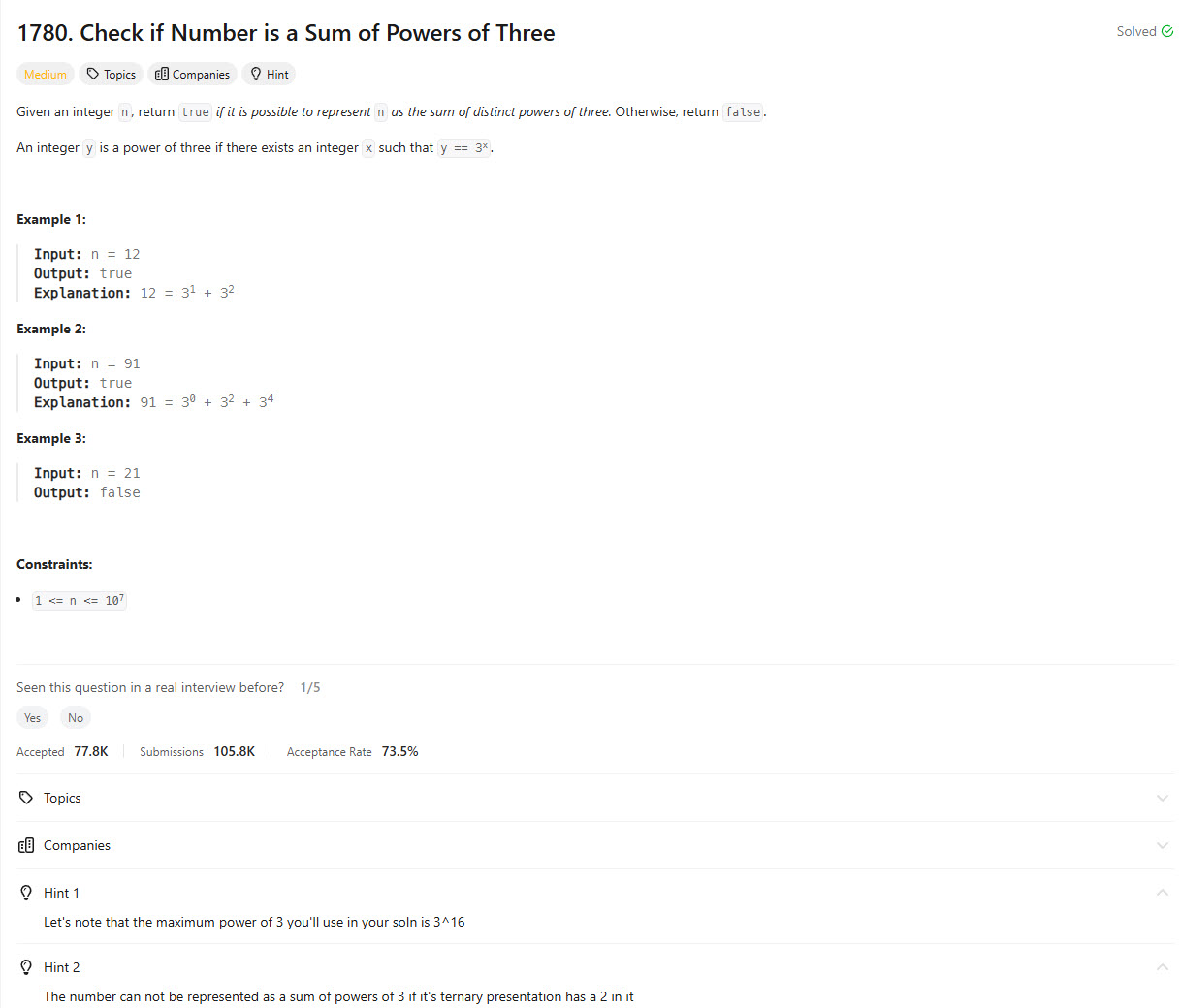Problem Statement

Brute Force [TLE]
class Solution:
def checkPowersOfThree(self, n: int) -> bool:
def dfs(power, target):
if target == 0:
return True
if target < 0:
return False
if 3**power > target:
return False
include = dfs(power + 1, target - 3**power)
if include:
return True
exclude = dfs(power + 1, target)
if exclude:
return True
return False
return dfs(0, n)
Approach 1: Backtracking (Brute Force)
class Solution:
def checkPowersOfThree(self, n: int) -> bool:
return self._check_powers_of_three_helper(0, n)
def _check_powers_of_three_helper(self, power: int, n: int) -> bool:
# Base case: if n becomes 0, we have successfully formed the sum
if n == 0:
return True
# If the current power of 3 exceeds n, we can't use it, so return false
if 3**power > n:
return False
# Option 1: Include the current power of 3 and subtract it from n
add_power = self._check_powers_of_three_helper(power + 1, n - 3**power)
# Option 2: Skip the current power of 3 and try with the next power
skip_power = self._check_powers_of_three_helper(power + 1, n)
# Return true if either option leads to a valid solution
return add_power or skip_power
Approach 2: Optimized Iterative Approach
class Solution:
def checkPowersOfThree(self, n: int) -> bool:
power = 0
# Find the largest power that is smaller or equal to n
while 3**power <= n:
power += 1
while n > 0:
# Subtract current power from n
if n >= 3**power:
n -= 3**power
# We cannot use the same power twice
if n >= 3**power:
return False
# Move to the next lower power
power -= 1
# n has reached 0
return True
Approach 3: Ternary Representation
class Solution:
def checkPowersOfThree(self, n: int) -> bool:
while n > 0:
# Check if this power should be used twice
if n % 3 == 2:
return False
# Divide n by 3 to move to the next greater power
n //= 3
# The ternary representation of n consists only of 0s and 1s
return True
